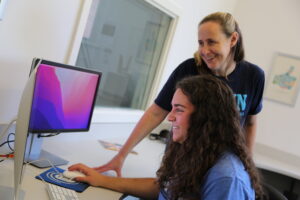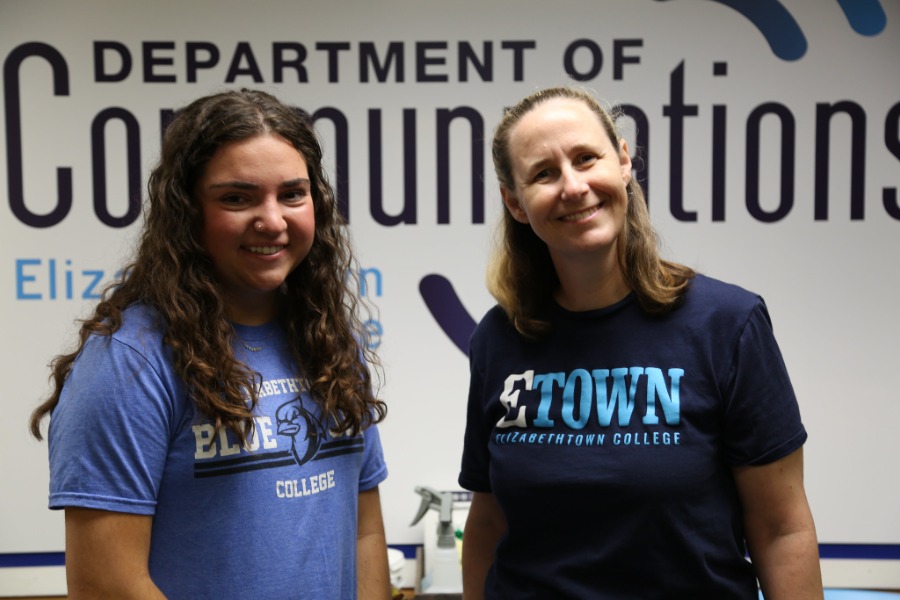Elizabethtown College journalism student Abigail Lindsay ’24 is examining journalism through the lens of social media. By studying posts made by journalists and anchors from around the country, Abigail is evaluating how fast-paced online platforms like Facebook are influencing key characteristics of journalism, such as accuracy and objectivity.
The data from her research will be used in Etown Professor of Communications Kirsten Johnson’s upcoming book, “Personalized News Communication and Media Trust in the Modern Era,” which will be published by Palgrave McMillan in fall 2024. The book will be co-authored with Dr. Burton St. John, a professor at the University of Colorado Boulder.
The independent student research and collaboration with an Etown faculty mentor is part of the Summer Creative Arts and Research Program (SCARP) program.
Title of Research
The Tenets of Journalism: A Thematic Analysis of Journalists’ Adherence to Traditional Journalistic Norms
Student Researcher
Abigail Lindsay ’24 (Journalism major)
Faculty Mentor
Kirsten Johnson, Professor of Communications
What are you researching?
Abigail: I began my research by completing an annotated bibliography where I read articles that focused on how journalists are utilizing social media, as well as articles that explained the tents of journalism such as accuracy and objectivity. The next step was to identify news, sports, and weather anchors from each of the stations we are looking further into.
A majority of the research focuses on coding Facebook posts made by each of these journalists and primarily looking to see if the posts they are making are objective or not. The data collected from this coding will then be used in Dr. Johnson’s upcoming co-authored book.
Why did you choose this topic?
Abigail: Getting to look further into how journalists today are using social media, not only is interesting for me to read, but also will allow me to have a better plan as to how I may choose to navigate social media after college as an aspiring journalist. The field of journalism is fast-paced and constantly evolving and getting to work on this project with Dr. Johnson has allowed me to take a step back and look at the social media aspect of journalism and see how this is changing the basics of what journalism is built on.
What is the most interesting aspect of this research?
Abigail: Getting to see how journalists chose to voice their opinions via social media has been interesting to research as a journalism major.
How has your faculty mentor helped you?
Abigail: Dr. Johnson has given me the confidence to feel as though I am not just working for her but rather with her. As a student, it gives me a lot of confidence to feel as though pursuing a journalistic career is truly what I want to do post-graduation.
Hear from the faculty mentor – Kirsten Johnson
“This research is important because, up to this point, no one has studied local anchor Facebook pages and examined whether or not the anchors are adhering to traditional notions of journalism, such as objectivity and fairness,” Johnson said. “It’s important to understand whether local news anchors are sharing their thoughts on stories, especially controversial stories like gun control and abortion, because this can impact how they are perceived by audience members.”

